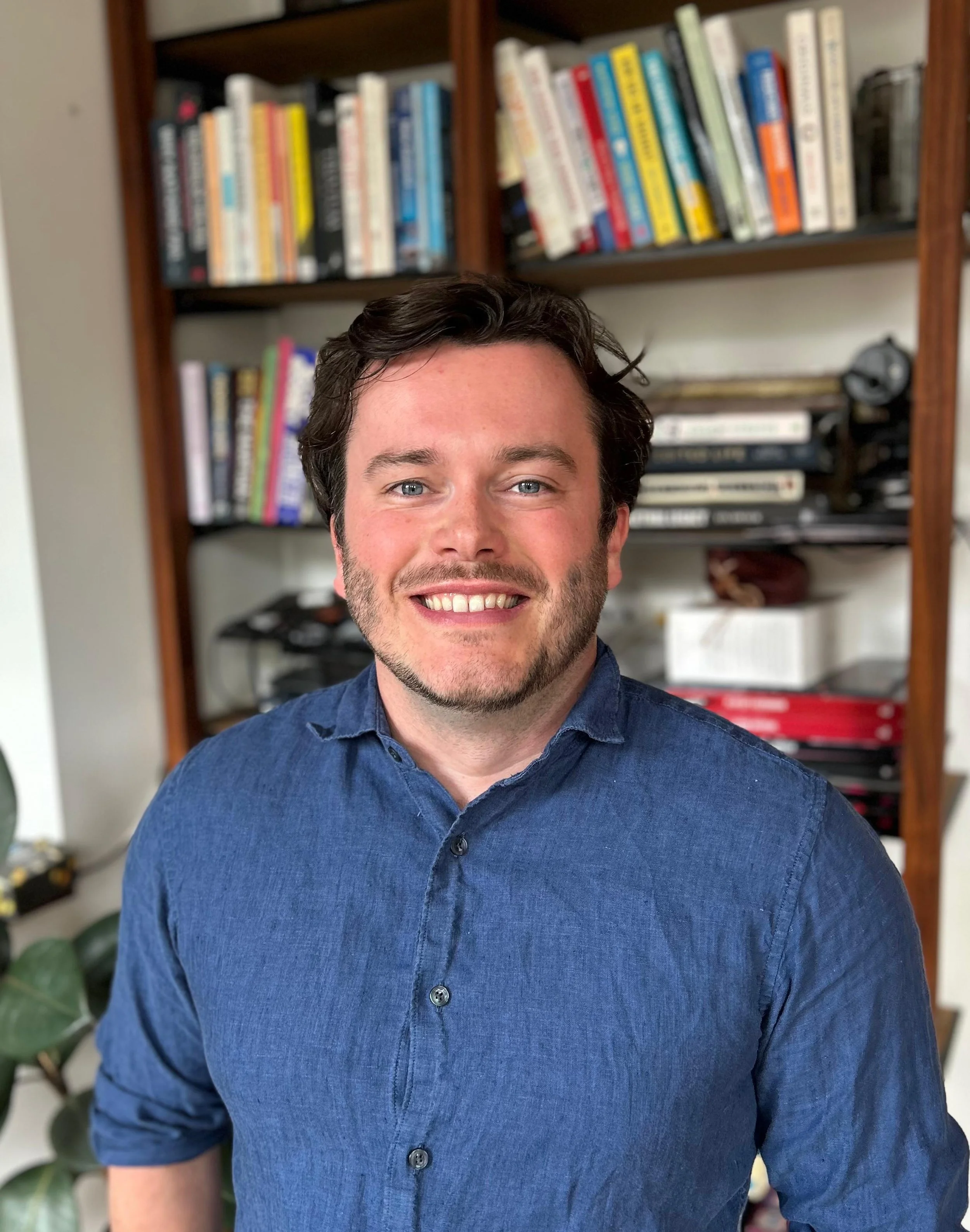Build systems that connect your purpose to your process
Finding market fit, supporting tech teams, story-telling with data, strategic planning, and integrating AI are all solved problems. I’m a product development manager helping mission-driven organisations have an impact more effectively.

I'm Rhys.
I've spent my career scaling impact - building global communities at Ubuntu, developing climate solutions at South Pole, and transforming circular economy platforms at Earth Action.
Now I'm launching StudioRhys to help mission-driven organisations bridge the gap between vision and execution.
Available for 1-6 month product management projects. If you're interested, get in touch.
Previously worked with:
Canonical | Ubuntu | South Pole | Earth Action | Forward Inc | Use/space
Problems I can help solve
These are just a few examples of the challenges I work on. If one feels familiar, click it, if you don’t see yours, that's fine - every organisation is unique. Get in touch to discuss what you're facing.
“We can build anything, and we have ideas, but don’t know what users will actually buy.”
- Tech company tech lead
“We see the ‘AI revolution’ coming but don’t know where to start to make it a part of our work.”
- Social enterprise co-founder
“Our team is amazing and motivated, but everyone's on different things, we’re struggling to get focus.”
- Sustainability consultancy COO
“We’re doing good work but don’t know how to prove our impact to investors and stakeholders”
- Non-technical NGO lead
Conversation starters
These are my current areas of focus. Each represents an opportunity to apply systems thinking to create meaningful change (except the blog, that’s just for me). Whether you have a specific challenge in mind or want to explore how I can help your organisation, let's start a conversation.
Plasteax - plastic waste data platform with Earth Action
When major corporations like Coca-Cola, Nestlé, and Mars needed help to measure and reduce their plastic footprints they came to EA. The lack of standardised plastic pollution data blocked evidence-based decision making and everyone was looking to EA for good data. But Plasteax, their database was not built to scale. Here’s how we solved it …
-
The global plastic crisis is accelerating with 82% of global plastic waste leaking into oceans and waterways remaining unmeasured and unaddressed.
Major corporations face mounting regulatory pressure and consumer scrutiny over their plastic footprints, but lack reliable data to make informed decisions. Without standardised global metrics, billions in sustainability investments are being made blindly.
-
The platform rebuild: Working with external development agency KLEIS.ch to transform a complex spreadsheet database into a live API platform without losing scientific accuracy or breaking existing clients.
Securing funding: Raising over €1.8M in grants to fund the development and secure future developments in partnership with Systemiq, while maintaining existing revenue streams.
User research at scale: Understanding how sustainability teams at multinational corporations actually use plastic data for decision-making when building a platform that costs significant money to develop and maintain.
-
Technical transformation: Led the complete rebuild from spreadsheet database to live data platform with API integration and online documentation, enabling real-time access to global plastic waste management data.
Business impact: Doubled subscriptions and revenue through strategic business development with Fortune 500 companies. Secured over €1.8M in critical grants including InnoVaud innovation funding and EIT Food sustainable impact grants.
Global reach: Platform now provides insights on the locations, origins and content of 82% of global plastic waste leakage Global Plastic Environmental Analytics Platform, serving enterprises, NGOs, governments and academic institutions worldwide with standardised plastic pollution metrics for evidence-based decision making.
Digital climate solutions with South Pole
When South Pole wanted to grow from a consulting company into a tech-enabled climate solutions provider, the lack of product development capabilities was limiting their ability to scale impact and compete with venture-backed climate tech startups. Here's how we solved it...
-
The climate tech sector was, and still is, growing with venture-backed startups building software solutions for carbon accounting, emissions tracking, and climate risk management. South Pole had world-class climate science expertise and Fortune 500 relationships, but was losing deals to tech companies with less climate knowledge but superior product execution.
Without digital solutions, they couldn't scale their impact beyond expensive consulting engagements or compete for the emerging climate software market worth billions.
-
Building product culture from scratch: Joining as the only product manager in a 700+ person consulting company and establishing product development practices, hiring processes, and technical capabilities in an organisation with no software development experience.
Hiring and scaling a product team: Growing from one product manager to leading a team of five product managers, plus designers and developers, while maintaining quality and establishing product management standards across the organisation.
Bootstrapping multiple products simultaneously: Managing discovery, development, and launch of five different digital climate solutions (greenhouse gas accounting, carbon credits platforms, emission factor databases) while learning the highly technical climate science domain.
-
Team building: Successfully hired and managed five product managers with different specialisations, growing the digital solutions team from five to 30+ people across product, design, and development.
Product portfolio: Launched five production-ready digital climate solutions from concept to market, establishing South Pole as a legitimate player in the climate technology space alongside pure-play tech companies.
Organisational transformation: Established product-led practices across the entire organisation, bringing systematic product development methodologies to traditionally consulting-focused teams and enabling South Pole to compete in both consulting and software markets.
When Ubuntu needed to support hardware developers, fledgling programmers, and people learning embedded software development, the lack of official support for the Raspberry Pi was blocking access to the world's most popular and affordable development platform. Here's how we solved it...
-
Ubuntu exists to democratise access to professional quality software, but without official Raspberry Pi support, we were missing the primary entry point for new developers and embedded systems.
Educational institutions needed stable, long-term support for curriculum development, and businesses wanted to move Pi-based prototypes to production but lacked enterprise-grade OS guarantees.
Raspberry Pi was striving to deliver the most open platform at the lowest price, making it the perfect target for Ubuntu's developer ecosystem expansion.
-
Hardware certification at scale: Working with Raspberry Pi trading leadership to establish certification that guarantees Ubuntu 'just works' through thousands of tests across different Pi models and configurations.
Enterprise partnership: Negotiating with Raspberry Pi trading to make Ubuntu a primary supported OS while maintaining their existing partnerships and community relationships.
Technical execution: Solving critical kernel bugs like USB port support on 4GB RAM versions while delivering reliable updates to millions of devices worldwide.
-
Market leadership: Ubuntu became a primary enterprise-supported OS for Raspberry Pi, with Canonical guaranteeing tested updates and security patches every three weeks and critical CVE fixes within 24 hours.
Developer adoption: Enabled professional development workflows on Pi hardware, from edge AI applications to IoT production deployments, with the same Ubuntu experience developers use in data centres.
Educational impact: Provided schools and universities with industry-leading security standards and long-term support, making the Pi a viable platform for computer science education at scale.
Let’s talk.
Whether you're wrestling with complex systems challenges, struggling to get the team working effectively, or need help with discovery and making sure you’re making the best decisions - I'd welcome a conversation. No pitches, just a discussion about your challenges and opportunities.







